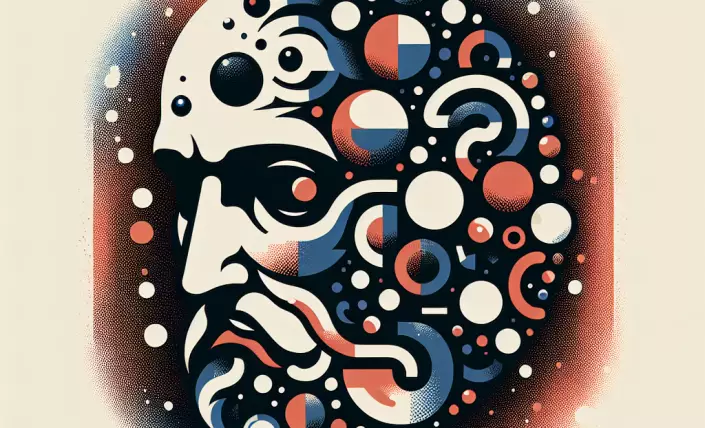In the labyrinth of human thought, where ethics and reason intertwine, the concept of moral freedom emerges as a beacon. This notion, intricately woven into the fabric of Immanuel Kant's philosophy, challenges us to reflect upon the essence of autonomy and the foundations of ethical living. Kant, a pivotal figure in the Enlightenment, ventured into the realm of practical reason, exploring how freedom and morality are not merely intertwined but are, in fact, mutually dependent. His exploration of human autonomy invites us to ponder whether we are truly free or if our actions are merely the result of external influences.
At the heart of Kant's philosophical endeavor is the idea that true freedom is not the capacity to do as one pleases but the ability to act according to principles that one has autonomously chosen. This notion, encapsulated in the concept of the categorical imperative, posits that moral laws are not external edicts imposed upon us; rather, they are intrinsic to rational agents. The categorical imperative, with its demand that one acts only according to maxims that could be universal laws, serves as a litmus test for moral action. This framework challenges individuals to examine their motives and intentions, urging them to transcend personal desires and align with universal moral principles.
Yet, Kant's philosophy is not merely an abstract exercise in ethical reasoning. It is a profound call to self-examination and personal growth. By recognizing that moral laws are self-imposed, we are confronted with our own capacity for self-governance and moral responsibility. This realization prompts a reevaluation of how we perceive our actions and the motivations that underpin them. Are we guided by genuine moral convictions, or do we succumb to the pressures of societal norms and expectations? Kant's philosophy urges us to cultivate a sense of duty that is rooted in respect for the moral law, rather than in fear of consequence or desire for reward.
Furthermore, Kant's exploration of moral freedom invites us to reflect on the inherent dignity of rational beings. By emphasizing autonomy as the cornerstone of moral action, Kant elevates the status of individuals as ends in themselves, rather than means to an end. This perspective challenges us to consider the implications of our actions on others, fostering a sense of empathy and respect that transcends mere transactional relationships. In a world often driven by utilitarian calculations and self-interest, Kant's emphasis on the intrinsic worth of individuals serves as a reminder of the ethical dimensions of our interactions.
In contemplating Kant’s insights, we are beckoned to engage with the profound questions of human existence: What does it mean to live a life of moral integrity? How do we balance our individual freedoms with the responsibilities we bear toward others? Kant's philosophy offers not definitive answers but a framework for reflection, encouraging us to embark on a journey of self-discovery and ethical maturation. In doing so, we are not merely passive recipients of moral truths but active participants in the ongoing dialogue of ethical reasoning.
As we navigate the complexities of modern life, Kant's exploration of moral freedom remains a timeless guide, urging us to embrace the challenges of autonomy and the responsibilities of ethical living. In a society that often prioritizes expedience over principle, Kant's philosophy serves as a clarion call to remain steadfast in our commitment to moral ideals. By doing so, we not only affirm our own humanity but also contribute to the cultivation of a more just and compassionate world. Through the lens of Kantian ethics, we are reminded that true freedom is not the absence of constraints but the presence of self-imposed moral law, guiding us toward a life of purpose and integrity.










